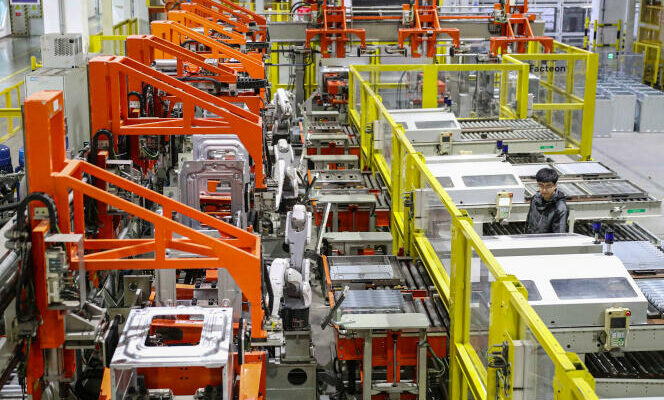The term was first mentioned by the German Chancellor, Olaf Scholz, in November 2022 before being taken up again in March 2023 by the President of the European Commission, Ursula von der Leyen, deploying a new concept to manage this relationship so complicated with China: “derisk”. He was less divisive than the “decoupling” promised then by Washington, and more realistic given current supply chains and the depth of the Chinese market.
But China put in place much earlier a clearer policy to limit its exposure and its dependencies, which forces foreign companies to adapt – some having to locate even more in China to comply with local rules, others looking for a way out. This is the reality highlighted by a new report from the European Chamber of Commerce in China. “China’s approach is the most comprehensive, the most far-reaching, in the way it has sought to prioritize economic security”notes its president, Jens Eskelund.
In 2014, President Xi developed a “holistic approach to national security” which has only strengthened with the rise in commercial and strategic tensions, resulting in a policy transposed into each ministry after entering the fourteenth five-year plan in 2020. Concretely, China has increased its production and storage capacities in the energy, food and strategic minerals sectors to reduce the impact of possible global shocks.
Legal arsenal
In certain sectors deemed crucial, authorities have given directives to get rid of foreign components and technologies. This is the case in the “hardware” information technologies but also in the less discussed medical equipment sector, where market allocation rules explicitly exclude non-Chinese players. THE Science and Technology Daily, an organ of the ministry in the same sector, also published in 2018 a list of 35 key areas in which the State coordinates the national effort. For example: lithography machines to produce microchips, computer operating systems, components of medical imaging machines, or even aeronautical quality metal.
At the same time, the People’s Republic has equipped itself with a legal arsenal both to protect critical sectors and to be ready for reprisals. In 2020, China enacted a new export control law, used in 2023 to restrict deliveries of gallium and germanium, two key minerals in the production of semiconductors. In October 2023, it limited its sales of graphite, used in particular in batteries, in response to American restrictions on sales of microchips for the artificial intelligence sector.
You have 39.8% of this article left to read. The rest is reserved for subscribers.
